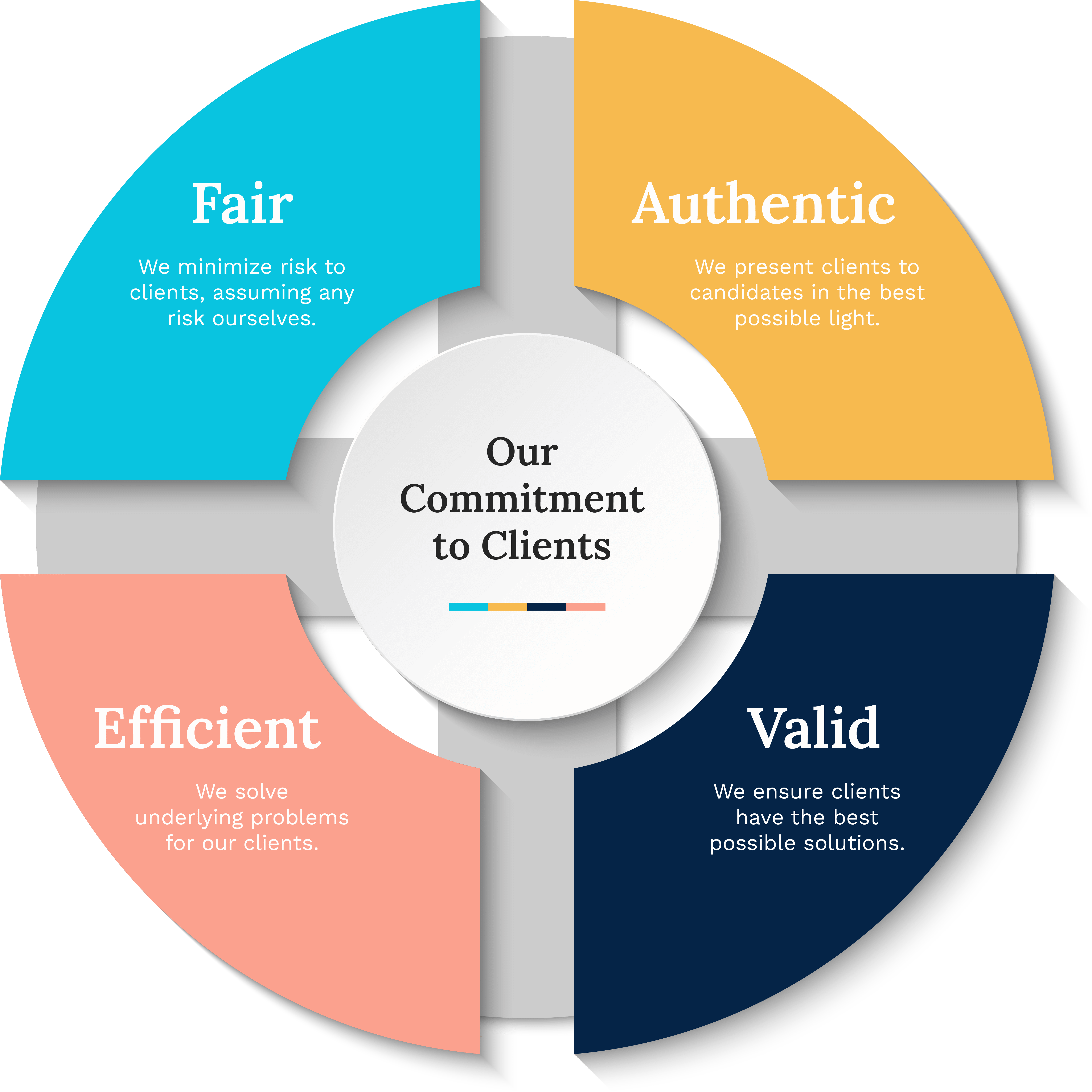
Revolutionize recruitment with AI technology that ensures the most advanced and unbiased hiring solutions.
Artificial Intelligence (AI) in recruitment refers to the use of advanced algorithms and machine learning techniques to automate and enhance various aspects of the hiring process. This includes tasks such as candidate screening, interview scheduling, understanding natural language, and performance prediction.
Algorithms are the foundation of AI, providing step-by-step procedures for solving problems and performing tasks. They help automate repetitive tasks, ensuring a more efficient and unbiased selection process. Although they’re fundamental to AI, not all algorithms qualify as true AI. True AI involves learning, reasoning, and adapting to new information.
Machine Learning (ML) is a subset of AI that focuses on developing systems that can learn from data and improve over time. In recruitment, ML algorithms analyze vast amounts of candidate data to predict job performance, identify the best-fit candidates, and provide insights into hiring trends.
Automation uses technology to perform tasks with minimal human intervention. In recruitment this involves using AI to streamline administrative tasks and improve efficiency such as scheduling and screening. It does not involve learning or adapting, distinguishing it from true AI.


At Harver, we are dedicated to providing the most Fair, Authentic, Valid, and Efficient solutions to our clients



Harver uses AI ethically and responsibly to improve our advanced statistical models that assist clients in decision-making. We use AI to reduce—never introduce—bias into the hiring process
Using AI to streamline and speed up recruitment processes that are typically repetitive and time-consuming, such as automated stage progression, automatic interview scheduling, fraud detection, and chatbot engagement for initial candidate interactions.
AI tools that analyze and interpret complex data to provide insights or explanations about the recruitment process, enhancing decision-making. We use AI to provide more context around results and explain the traits measured through assessment.
Using AI to evaluate candidates’ suitability for a role based on various criteria. This includes elements like spoken language assessments, video interview analysis, and machine learning models predicting job success based on incumbent data.

Research suggests AI hasn’t increased the number of candidates attempting to cheat—those inclined to cheat with AI are the same as before.
Harver’s predictive assessments are designed to be difficult to cheat, with built-in anti-cheating mechanisms and fraud detection capabilities.
Different methods to deter cheating are used for each assessment module. Because we use a variety of assessments to inform our matching scores, Harver’s matching technology is highly resistant to cheating using AI.
Harver is committed to using AI responsibly to improve decision-making processes. All employment decisions are explainable and justifiable, with human oversight ensuring fairness and compliance with regulations.
Harver complies with uniform guidelines from regulatory bodies, including the EEOC, OFCCP, and complies with NYC Local Law 144, and the Illinois Human Rights Act amendment and Illinois AI Video Interview Act, ensuring fairness and protecting candidates’ rights


Within Harver, we work together across compliance, security, data science, and I-O psychology to reduce bias and maintain ethical standards, reconciling all perspectives to achieve a comprehensive viewpoint.
Harver’s AI governance program includes:

Learn how ethical Al enables fairer hiring and results in smarter, better decision making.

Harver aligns with key legal and ethical frameworks, including EEOC, OFCCP, NYC Local Law 144, Illinois AI Video Interview Act, and the Illinois Human Rights Act, to ensure fairness and candidate rights. Harver also prepares for EU audits and registers high-risk AI systems per EU AI Act requirements.
Harver provides explainability features that interpret algorithmic outcomes, helping users understand what traits are measured and why candidates receive specific recommendations, supporting informed and defensible decisions. Harver documents all validation studies, model performance, and bias mitigation efforts in a centralized database to ensure transparency and audit-readiness
Harver’s AI is decision-support, not decision-making. The system empowers recruiters with insights rather than automation without accountability, ensuring human judgment remains central. This ensures responsible, explainable outcomes that align with hiring goals and legal standards.
Automation follows rule-based workflows like scheduling and screening, while AI involves learning and model-driven predictions. Harver clearly separates these systems, ensuring automation enhances efficiency and AI enriches decision quality.
Harver provides an ethical evaluation framework with 7 key criteria to assess AI tools. This helps HR, talent, and legal leaders make informed decisions about transparency, fairness, data usage, and long-term impact—empowering teams to select solutions that align with both performance goals and ethical standards.
Harver blends scientific rigor, regulatory readiness, and candidate protections into its AI strategy. With a strong validation framework, transparent disclosures, opt-out options, and real-time bias monitoring, Harver sets a high bar for empowering organizations to adopt AI confidently, ethically, and effectively. By integrating ethical frameworks, explainable models, and human oversight—backed by industrial-organizational science—
Harver offers a more transparent, compliant, and fair hiring solution than most “black box” tools.

See how Harver uses AI for assessment and automation to transform hiring processes.
Ready to serve you with our full suite of talent solutions and a fresh look!